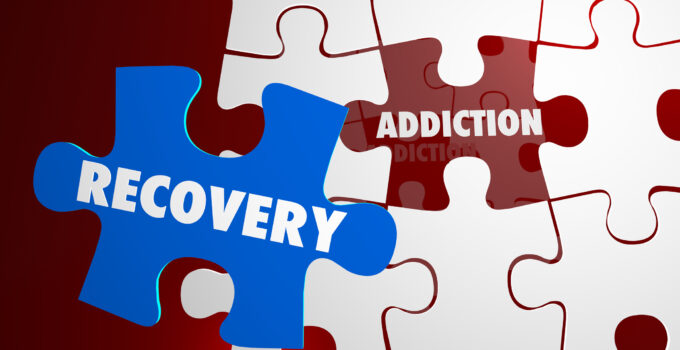Recovery from drug or alcohol addiction often involves a person making significant changes in their lives. It is directed at improving the quality of the person’s life including overall health and wellness. It also helps people to feel empowered to achieve their full potential. However, drug recovery is not as easy as it may sound. There are steps to follow in the process. There are also common mistakes that people make especially during early recovery. Below are some of the most common mistakes to avoid on the first day of your drug recovery:
1. Expecting Immediate Results
Source: unsplash.com
Drug addiction is a disease that demands attention. It is chronic, often relapsing, and causes compulsive and often destructive behaviors. One uses a drug to feel good right then. Getting long-lasting results that you can be proud of takes time. It is the same case with recovering from drug addiction.
Having high expectations can lead to disappointments and resentment, which in turn can lead to relapse. You must keep your early expectations of a sober life low so that you don’t disappoint yourself by not immediately reaching lofty goals. You will require commitment and sacrifice of time and energy on a day to day basis to achieve positive results and not just day one. Recovery can be all you long for, but you will need time and patience to achieve it. You will need to consistently follow all the steps.
Many people make a mistake on their first day of the process by thinking detox is all they need. Therefore, you need to get guidance from professional medical professionals from The Forge Recovery Center.
2. Expecting Others to Forgive and Trust
Source: ct.counseling.org
On your first day and subsequent early stage of drug recovery, you are likely to feel guilt, shame, and remorse. These feelings result from your previous actions while in addiction. As much as you try to put things straight, dwelling on these feelings will make you feel miserable and bring back painful emotions. These emotions are likely to cause relapse. Gaining other peoples’ trust will not happen instantly on day one.
You will make many mistakes and many apologies. They will be afraid you might go back to your previous behavior; be patient with them. As days move on, there will be evident and significant change which will eventually erase the old memories. Their trust will come automatically with time. Expecting too much from people may discourage you hence killing your morale to recover.
3. Hanging Out With the Same Friends As Before
Source: unsplash.com
On your first day of the healing process, you might feel like showing off to your friends. You will feel the urge to prove to them that you can hang out with them and not drink or use drugs.
Although being around your friends may feel comfortable and familiar, hanging out with addicts who are not interested in recovery is dangerous to your own goals. It is not likely that your drinking friends will change just to accommodate the changed you.
Also, be aware that going to parties and being around alcohol or drugs can make you feel vulnerable and tempted to use. You must remember that it is easier for your addicted friends to pull you back than it is for you to change them overnight. You may start to feel left out or isolated, and may be swayed back under their influence. Although it may be difficult, it is recommended to avoid your old drug-using friends on your first days of drug recovery.
4. Thinking You Can Do It Alone
Source: unsplash.com
Addiction makes an individual feel self-sufficient. This may lead to thinking that you don’t need help and asking for help shows weakness. When it comes to the healing process, this is not the case.
You will need to build new relationships for effective drug recovery. The first day may be challenging to seek help, but guidance from professionals and those who have gone before you is of great help. Asking is not easy, especially when you are used to coping under your esteem. You need to accept from the word go that you cannot do it alone. It takes high levels of humility to admit that you are struggling and courage to seek help. Remaining open-minded and teachable by others from day one will quicken your drug recovery process.
5. Obsess About the Future
Source: unsplash.com
As you embark on your drug recovery journey, you are likely to have many exciting plans for the new sober you. It’s good to prepare for the future, but remember to remain in the present, especially during early recovery. Working towards your goals on your first day of addiction recovery means focusing on the here and now. All the changes in the drug recovery process begin from day one. It is this that will determine your achievement of future goals. Instead of being obsessed with the future, do something on your first day that will make tomorrow better. Your recovery starts on day one; make it count.
6. Attempt Drinking Alcohol
Source: unsplash.com
Though many people don’t see alcohol as a problem, drinking on your first day or early healing stage is a serious blunder. Many people struggling to recover from cocaine or opioids see alcohol as more or less incidental. This is a dangerous mistake in your healing journey since many people combine alcohol with other drugs. Alcohol also impairs judgment and self-control. This can easily make you vulnerable to relapse. If you are recovering from drug use, it is important to avoid alcohol at any cost. It takes a lot of discipline, but it is worth it.
It may seem easy, but the process is long, gradual, and requires commitment. Everyone’s journey, healing process, and results will be different. For this reason, comparing your recovery to others might just discourage you. Many challenges come with the drug recovery process. In addition to the above, other mistakes to avoid on your first day of drug recovery include testing your willpower, thinking you are cured, expecting too much from yourself. Now that you know the things to avoid on the first day and early recovery, it remains your responsibility to embark on your healing process. Yes, addiction is a disease, but recovering from it is possible.




